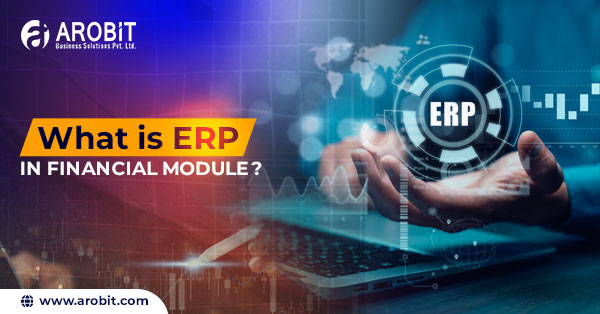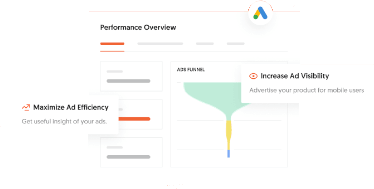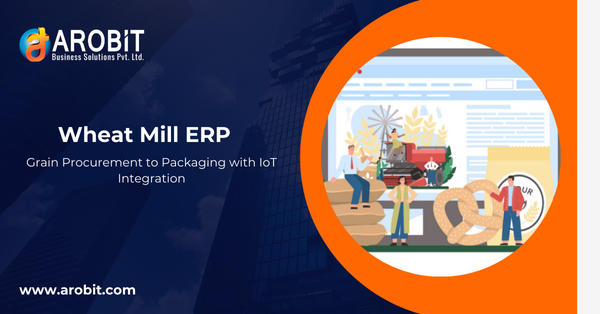Effective finance management is the basis of today's fast-moving business environment and is the only way for any organization to survive competitively in the marketplace. An ERP finance module is one element among various ERP modules that forms the backbone of an Enterprise Resource Planning system, integrating various financial processes into a single platform. This article delves into the importance, features, benefits, and frequent questions about ERP finance modules so that readers may gain insights about how these change the use of finance in organizations.
The global ERP market size will be $78.4 billion by 2025, indicating dependence on integrated software solutions for streamlined business processes. One of the most important components of a modern ERP system is the finance module, which facilitates smooth financial activities in an organization. Here are some interesting facts that bring out its significance:
- 80% of companies have enhanced their financial reporting accuracy through the use of ERP systems.
- Organizations that implement an ERP finance module can reduce their month-end close processes by up to 50%.
- 70% of finance leaders believe that automation through ERP systems enhances decision-making capabilities.
These statistics underscore the transformative impact of ERP finance modules on organizational efficiency and decision-making.
Purpose of the ERP Finance Module
The ERP finance module is a critical component of any comprehensive ERP software solution, designed to streamline financial processes and serve several essential functions:
- Central Hub for Financial Data : It combines the financial information about all departments under one centre to ensure that the information reaches the desk of decision-makers and is updated at all times.
- Automates Accounting Processes: Automatic invoicing, expense tracking, and reconciliation of accounts and reducing errors by humans means that much time is saved.
- ERP Finance Module: Supports Compliance with the Financial Regulation of an Organization.
Key Features of the ERP Finance Module
1. General Ledger (GL)
A general ledger is the core book that maintains all records about transactions, such as sales, expenses, and assets. Through the general ledger, one would then get a comprehensive view of an organization's health in terms of finances and, thus, it is the "heart" that pumps all financial statements into life.
2. Accounts Payable (AP)
The Accounts Payable feature manages short-term debts and supplier invoices. It ensures timely payments and accurate record-keeping, which is crucial for maintaining good supplier relationships and avoiding late fees.
3. Accounts Receivable (AR)
Accounts Receivable monitors the money that clients owe. It also streamlines and automates invoicing and payment processing, which improves cash flow through the expedited collection of payments.
4. Asset Management
This module tracks the lifetime of tangible and intangible assets. It maximizes asset use and maintenance schedules to help organizations achieve maximum returns on investment.
5. Cash Management
Cash management tracks liquidity as well as cash-flow analysis to enable organizations to make proper financial planning. It further enables organizations to predict their cash needs and have efficient working capital management.
6. Financial Planning and Analysis (FP&A)
FP&A provides tools for budgeting, forecasting, and strategic planning based on historical data. This feature enables organizations to set realistic financial goals and track performance against those goals.
7. Risk Management
Risk Management monitors user access and internal controls to mitigate financial risks. It ensures compliance with regulations and protects against fraud or errors in financial reporting.
8. Vendor Management
Vendor management enables end-to-end management of the relationship with suppliers—from onboarding to payment processing—and ensures that procurement processes are efficient and transparent.
9. Bank Integration
Account balances can be viewed in real-time, and transaction reconciliation can be done with this feature. It streamlines the process of bank statement processing and improves cash flow visibility.
10. Profit Tracking
Profit tracking analyzes overall financial health through performance metrics and profitability analysis. It helps organizations improve areas that may need improvement and, therefore, move towards optimizing profit margins.
11. Multicurrency Capabilities
For businesses globally, multicurrency capabilities would handle transactions in various currencies and bring current exchange rates. This feature is essential to allow accurate accounting in international markets.
12. Tax Management
Tax Management keeps track of regional tax regulations and also simplifies the reporting of taxes. It ensures to automation of calculations and reporting processes for a reduction of errors in taxation during the season.
13. Reporting and Analytics
Reporting and Analytics offers built-in tools for generating financial reports, dashboards, and scorecards for informed decision-making. This feature provides stakeholders with insights into financial performance at a glance.
Table of Contents
|
Feature |
Description |
|
General Ledger |
Core accounting record tracking all financial transactions. |
|
Accounts Payable (AP) |
Manages short-term debts and supplier invoices for timely payments. |
|
Accounts Receivable (AR) |
Tracks the amount owed by customers and automates invoicing processes. |
|
Asset Management |
Oversees lifecycle management of physical and intangible assets. |
|
Cash Management |
Monitors liquidity and cash flow analysis for effective planning. |
|
Financial Planning & Analysis (FP&A) |
Tools for budgeting, forecasting, and strategic planning. |
|
Risk Management |
Monitors user access and internal controls to reduce the risks. |
|
Vendor Management |
Facilitates end-to-end supplier relationship management. |
|
Bank Integration |
Allows real-time viewing of account balances with reconciliation of transactions. |
|
Profit Tracking |
Analyzes overall health of finances with performance metrics. |
|
Multicurrency Capabilities |
Manage transactions in various currencies with real exchange rates. |
|
Tax Management |
Ensure compliance of tax across regions. |
|
Reporting and Analytics |
Built-in reports, dashboards, and scorecards. |
Benefits of the Finance Module in an ERP
The finance module in an ERP can bring about many benefits to an organization:
- Improved Forecasting Accuracy: Better data analytics capabilities help in improving forecasting; therefore, proper business decisions.
- Time to Complete Reports: Reduced manual efforts required to create reports mean quicker access to critical financial information.
- Streamlining Decisions: Real-time data access helps finance teams reach well-informed decisions more quickly.
- Better Risk Management: Enhanced monitoring can identify impending risks much earlier than before.
- Cost Savings: Streamlining processes and reducing manual work allow businesses to save on labour costs that accompany accounting tasks.
- Effective Collaboration: Integrated systems improve interdepartmental communication, encouraging harmonious planning and execution.
Standard Financial Operations Managed by the ERP Finance Modules
The finance modules of the ERP system manage several interrelated processes that form the very backbone of efficient financial management:
- Order-to-Cash Process: Integrates sales order management with accounts receivable to ensure smooth cash flow from customer orders through payment collection.
- Procure-to-Pay Process: Links purchasing activities with accounts payable for efficient vendor payments, thus ensuring that suppliers are paid promptly while managing cash flow effectively.
- Record-to-Report Process: Automates the collection of financial data required to generate accurate reports. As such, there is usually no need for much human effort to meet regulatory demands.
- Budgeting and Forecasting: These use historical data to provide organizations with realistic budgets and forecasts, which then help guide strategic planning. This resource allocation proves to be more effective if done right.
Selecting the Best ERP Finance Module
When selecting an ERP finance module, consider the following factors:
- Integration Capabilities: Ensure the module can integrate well with other business modules in your ERP system, like the purchase module in ERP, to provide a holistic view of operations.
- Scalability: Select a system that can keep growing with your organization as your financial needs change; it is critical for organizations that expect growth or expansion.
- User-friendliness: The interface is easier to understand, which allows high rates of adoption among staff; training costs may be kept at the lowest when users can easily understand the system.
- Customization options: Ensure the modules are customizable according to the specific needs of your industry or organization.
- Vendor Reputation: It is necessary to research potential vendors; an established ERP software development company with quality service in India or globally can be ideal.
Case Study: Oracle Fusion Cloud Financials
Oracle's Fusion Cloud Financials is a good example of a powerful ERP finance module that centralizes all financial functions under one roof. Its key features are as follows:
- Comprehensive general ledger capabilities
- Advanced analytics to provide insights in real-time
- Automated accounts payable and accounts receivable
- Strong compliance features ensuring adherence to regulations
The implementation of the solution by Oracle has indicated improved operational efficiency and increased speed of making decisions by organizations that adopt it, as a result of the ease of use and strength of analytics.
FAQs
Q1. What is ERP in finance?
A1. ERP is an acronym for Enterprise Resource Planning. It refers to integrated software systems used to control core business processes in all departments, such as finance, HR, supply chain, and manufacturing, among others.
Q2. How is ERP applicable in finance?
A2. ERP systems help in refining financial operations by integrating accounting functions such as invoicing, payroll, budgeting, asset management, tax compliance, and reporting into a singular platform that provides real-time visibility over an organization's finances.
Q3. What is the finance module in ERP?
A3. The finance module of an ERP system handles all activities related to the financial operations of an organization, including GL management, AP management, AR management, asset management, cash flow management, tools for budgeting or forecasting, features of risk management, functionalities for tax compliance, reporting, etc.
Conclusion
The changing nature of the ERP finance module is important for a modern business. Organizations, as they advance in their management, come up against challenges in handling the finances effectively, from regulations to trading across boundaries. The need for robust financial solutions becomes a real need. Advanced ERP solutions, like Oracle Fusion Cloud Financials or similar products from leading providers, like an ERP software development company in India , can enhance business operations and give them control of accurate finances. Beyond improving accounting functions, an efficient module of ERP in finance empowers organizations with insights necessary for strategic decision-making. As organizations continue to face challenges arising from market turbulence, encompassed by fluctuating market conditions or the deregulation of their environment, selecting the best ERP companies in India will be crucial for sustained growth and competitiveness. Summarizing:
- An effective financial module of ERP includes the most applicable functions in absolute harmony.
- Accuracy in reporting as well as better cash flow management are achieved.
- Selecting an appropriate vendor, such as experienced ERP software developers in India, goes a long way in ensuring the success of a project.
By focusing on these factors in their strategic planning, businesses can position themselves not only to survive but to thrive in today's competitive environment with the help of ERP development companies.
Next Steps: Improve Cash Flow with ERP Finance
Understanding what an ERP finance module does is just the first step. But how does it impact cash flow and budgeting? Learn how businesses optimize their financial processes and make data-driven decisions with ERP finance
solutions.
Discover the benefits of ERP finance modules.
Compare ERP Finance Solutions for Your Business
Now that you understand ERP finance modules, the next step is choosing the right software. Not all ERP solutions are the same, and pricing varies based on features and scalability. Get a detailed comparison to find the best
option for your needs.
Explore ERP finance software pricing and comparison.








